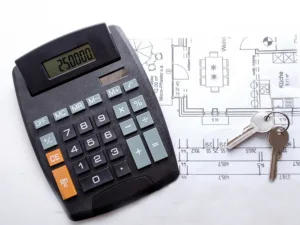Have you ever walked by a construction site, looked at the hustle and bustle, the seamless coordination, the rising structure, and thought to yourself, “I could manage that?” If the intricacies of planning, leading, and delivering construction projects excite you, then a career as a construction project manager might just be your calling. However, you might think you need a degree or prior experience to get started, but that’s not always the case. While many successful construction project managers have a bachelor’s degree in fields like construction management or civil engineering, this guide will explore alternative paths. In this post, we’ll guide you through the steps to becoming a certified construction project manager, no degree or experience required. Whether you’re a recent high school graduate, considering a career change, or looking to pursue your passion, this comprehensive guide can serve as your roadmap to a rewarding career in construction project management. Buckle up, as we debunk myths and set you on an unconventional but achievable path.
Table of Contents
The Challenges of Entering Construction Project Management Without Experience or a Degree
Embarking on a career in construction project management without a degree or previous experience might seem like stepping into a battlefield unarmed. The industry is often viewed as a complex labyrinth where only those armed with degrees and battle-hardened with significant construction project management experience, like construction managers, can survive and thrive. It’s true that these elements provide a sturdy foundation of knowledge and credibility, making them powerful tools in this field. However, they are not the be-all and end-all for becoming a construction project manager.
Some of the challenges you might face when entering this field under these conditions can include skepticism from potential employers, competition from more traditionally qualified candidates, and the daunting task of proving your competence in a practical setting. Gaining construction project management experience, even in entry-level roles, is crucial to overcoming the skepticism of potential employers. You may also face the challenge of acquiring the relevant technical and soft skills necessary for project management in the construction industry. This can include everything from understanding construction processes, adhering to safety protocols, mastering project management tools, to communicating effectively with diverse teams.
The path might be steep, but it is by no means impassable. If you’re ready to lace up your boots and face these challenges head-on, you will find that there are a variety of ways to navigate around these roadblocks. Keep reading, and we will show you how. Remember, the purpose of highlighting these challenges is not to discourage you, but to equip you with a clear understanding of the road ahead and prepare you for the exciting journey.
What Does a Construction Project Manager Do?
To fully understand the path ahead and the career we’re aiming for, let’s take a moment to unpack the multifaceted role of a construction project manager. Often, when people think of construction, they visualize hard hats, steel-toed boots, and busy sites buzzing with activity. Yes, these are part of the bigger picture, but there’s more to the story. A construction project manager stands as the conductor of this grand orchestra, coordinating between various sections to produce a harmonious masterpiece – a completed construction project.
A construction project manager is responsible for overseeing the entire project from inception to completion. They are involved in the planning, coordination, budgeting, and supervision of construction projects. The range of their tasks can be vast and varied, spanning from sketching out project plans, scheduling timelines, coordinating with contractors, architects, and stakeholders, to managing unexpected hurdles and ensuring that the project stays within budget.
In addition to the technical aspects, a construction project manager must also possess a unique blend of soft skills. They are communicators, negotiators, problem solvers, and decision-makers. They are often seen negotiating with suppliers, resolving conflicts within teams, making critical decisions under pressure, and communicating effectively with clients and stakeholders.
In essence, a construction project manager is the linchpin holding together all the different aspects of a construction project. Their role is as challenging as it is rewarding, and it requires a combination of technical knowledge, practical skills, and interpersonal abilities. Construction project managers need a broad skill set to manage the complexities of modern construction projects effectively. Don’t worry if you don’t have these skills yet – the next sections will guide you on how to acquire them, even without a degree or prior experience.
Gaining Relevant Knowledge and Skills Without a Degree
Now, if you’re feeling a bit daunted thinking about the wide range of skills a construction project manager needs, let me reassure you – it’s perfectly normal. No one starts a career knowing everything from the get-go. The same holds true here. Despite the common misconception, you don’t need a formal degree to learn about construction project management or to acquire the skills necessary to succeed in this field. While formal education in construction science or related fields is beneficial, there are alternative ways to acquire essential knowledge and skills for construction project management.
In the digital age, knowledge is at our fingertips, and all it takes is a bit of curiosity and dedication. Self-learning through online platforms is a fantastic way to start your journey. Websites like Coursera, Udemy, and Khan Academy offer courses on construction management and related subjects. These courses, taught by industry professionals, cover topics such as construction methods, project planning, budgeting, risk management, and more. You may not get a formal degree, but you will gain a wealth of practical knowledge and potentially some certificates to showcase on your resume.
Another excellent resource is books. They provide in-depth knowledge and can serve as your silent mentors. Books like “Construction Management JumpStart” by Barbara J. Jackson and “Construction Project Management: A Complete Introduction” by Alison Dykstra can provide you with a solid understanding of the industry.
Also, never underestimate the power of on-the-job training. Look out for entry-level positions or internships in the construction industry. These opportunities can give you a first-hand experience of how things work on the ground. You may start at the bottom, but the learning curve can be phenomenal.
Moreover, familiarizing yourself with project management software like Microsoft Project, Primavera, or tools specifically tailored for construction like CoConstruct and Procore can give you a substantial edge. These tools form the backbone of project management in today’s world, and mastering them will significantly enhance your productivity and professionalism.
Remember, not having a degree isn’t a barrier, but an invitation to explore alternative paths to learning and growth. Through this journey, you will not only gain relevant knowledge but also develop the resilience and resourcefulness that are key to becoming a successful construction project manager.
Earning a Certification Without Prior Experience
Earning a certification in construction project management is a significant step for those looking to become a construction manager, even without prior experience. It provides you with the necessary credentials that demonstrate your understanding of the field. But you might be asking yourself, “Can I earn a certification without any prior experience?” The answer is a resounding “Yes!” While some certifications may require experience, there are several that do not. These certifications provide an excellent starting point for those entering the field fresh.
The Certified Construction Manager (CCM) offered by the Construction Management Association of America (CMAA) is one such certification. It doesn’t require experience but does demand a certain level of knowledge which you can gain through self-study, online courses, or workshops. Similarly, the Associate Constructor (AC) certification from the American Institute of Constructors (AIC) is designed for those new to the construction industry.
Preparing for these certifications will involve rigorous study, and the exams will test your knowledge of key concepts and skills in construction project management. There are plenty of study resources available, including exam prep books, online courses, and even study groups on social media platforms. Dedicate a study schedule and stick to it, as consistency is key in absorbing and retaining this vast array of knowledge.
While the journey might be challenging, remember that earning a certification isn’t just about adding a fancy title to your resume. It’s about the learning process, the knowledge you gain, and the confidence you build. It’s about proving to yourself and others that even without a traditional degree or previous experience, you have the skills and determination to excel as a construction project manager. So, gear up and take the plunge! You’re not just studying for an exam – you’re laying the foundation for a flourishing career in construction project management.
Building a Portfolio and Gaining Practical Experience
With knowledge under your belt and potentially a certification to your name, the next step on your journey is gaining practical experience. You might be wondering, “How can I gain experience if no one will hire me without experience in the first place?” It’s a classic conundrum, but fear not, there are ways around it.
One strategy to kick-start your hands-on experience is to volunteer for construction projects. Non-profit organizations, community centers, and local charities often have construction projects on the go and are always looking for an extra pair of hands. While you might not be calling the shots, you’ll be in the thick of it, observing, learning, and understanding the nuts and bolts of project management in real-time.
Simultaneously, work on building a portfolio that showcases your understanding of construction project management. It can include case studies, theoretical project plans, or practical scenarios you’ve solved. If you’ve taken online courses, many of them include project-based learning that you can include in your portfolio.
Networking is another crucial aspect of building your career. Attend industry events, seminars, or webinars. Join online forums, engage in discussions, ask questions, share your insights. This can help you connect with professionals in the field who can offer advice, mentorship, or even job opportunities. Platforms like LinkedIn are a great place to start, as they offer a multitude of networking opportunities.
Don’t let the lack of a formal job hold you back. Remember, every bit of practical experience counts, whether it’s from a volunteer stint, an internship, or a part-time job. Every task you complete, every challenge you overcome, and every connection you make brings you one step closer to your goal of becoming a certified construction project manager. So, roll up your sleeves and dive in. The experience is waiting for you to seize it!
Continuing Education and Career Development
Your journey to becoming a certified construction project manager doesn’t end with getting certified or landing your first job. In fact, that’s just the beginning. The construction industry, like any other, is constantly evolving with new technologies, methodologies, and regulations. As a project manager, it’s crucial to stay updated and continually expand your knowledge and skills.
Continuing education is a key element of career development in construction project management. This can come in the form of additional certifications, advanced courses, or even earning a degree later down the line. For instance, you might consider earning the Project Management Professional (PMP) certification from the Project Management Institute (PMI) once you’ve accumulated enough experience. Or you might delve into specialized areas like green building practices, lean construction, or Building Information Modeling (BIM).
Professional associations offer an excellent platform for continuing education. Associations like the Construction Management Association of America (CMAA) or the American Institute of Constructors (AIC) offer resources, workshops, and conferences that can help you stay updated with industry trends and developments. These associations also provide excellent networking opportunities.
But remember, career development isn’t just about adding more credentials to your resume. It’s about becoming a better professional and a more effective leader. Seek feedback from peers, supervisors, and subordinates. Reflect on your projects, learn from your mistakes and successes, and strive for continuous improvement.
The journey to becoming a certified construction project manager without a degree or experience is a journey of constant learning and growth. It requires determination, perseverance, and an insatiable hunger for knowledge. It’s a challenging path, but the rewards – both personal and professional – are well worth the effort. So, keep learning, keep growing, and keep building the future!
Conclusion
And there you have it – a comprehensive guide to embarking on a career in construction project management, no degree or experience necessary. We’ve debunked myths, outlined alternative paths, and equipped you with practical steps to navigate this seemingly daunting journey. Remember, each path is unique, and your journey might not look exactly like what we’ve laid out. It’s a guide, not a rulebook.
What’s most important is the determination to pursue your passion, the perseverance to overcome obstacles, and the curiosity to keep learning. Whether it’s mastering online courses, volunteering at local projects, networking at industry events, or preparing for certification exams, each step you take is a step towards your goal.
The road to becoming a certified construction project manager might be steep and rocky, but the view from the top makes the climb worth it. It’s a career that offers not just the thrill of seeing projects come to life, but also the fulfillment of leading teams, solving complex problems, and contributing to the fabric of our communities.
So, don’t let the absence of a degree or experience deter you from pursuing a career in construction project management. With the right approach and resources, anyone with determination and a keen interest in the field can chart their own path. Take the first step, stay committed to the journey, and before you know it, you’ll be at the helm of your first project, ready to build and create. The world of construction project management awaits you, and it’s time to make your mark!
Related posts
Read our other articles where you can find useful and relevant information about construction project management:
About the Author

Taavi Kaiv
Taavi Kaiv is a construction specialist with over ten years of experience in the construction industry. Taavi is an accomplished construction project manager with many successful projects that have been completed under his guidance. Taavi holds a master’s degree in construction management from the Tallinn University of Technology. View profile






